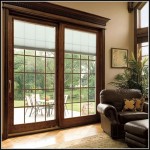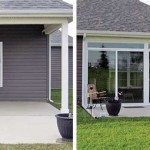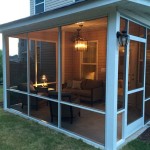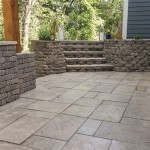Interlocking Polywood Deck Patio Tiles: Atlanta's Durable and Stylish Outdoor Flooring Solution
Atlanta, a city known for its vibrant culture and outdoor living spaces, frequently seeks durable, attractive, and easy-to-install solutions for patios, decks, and balconies. Interlocking polywood deck patio tiles have emerged as a popular choice, offering a blend of aesthetic appeal, durability, and ease of installation that addresses many of the challenges associated with traditional decking materials. This article delves into the advantages, considerations, and practical applications of interlocking polywood deck patio tiles in the Atlanta metropolitan area.
Polywood, also known as recycled plastic lumber, is a synthetic material crafted from high-density polyethylene (HDPE) plastic. This HDPE often originates from recycled sources like milk jugs and detergent bottles, making polywood an environmentally conscious choice. The manufacturing process transforms the recycled plastic into a dense, durable material that mimics the appearance of natural wood but possesses superior resistance to moisture, insects, and decay. Interlocking systems further enhance polywood's appeal by simplifying the installation process, eliminating the need for specialized tools or professional expertise in many cases.
Durability and Weather Resistance in Atlanta's Climate
Atlanta's climate, characterized by hot, humid summers and mild winters, presents specific challenges for outdoor building materials. Traditional wood decking is susceptible to rot, warping, and insect infestation, requiring regular maintenance and replacement. Interlocking polywood deck patio tiles offer a significant advantage by being impervious to these issues. The HDPE composition resists moisture absorption, preventing rot and decay, even in perpetually damp environments. Furthermore, polywood is not a food source for insects, eliminating the risk of termite damage and other infestations common in the Atlanta area.
The material's resistance to ultraviolet (UV) radiation is also crucial for longevity. Continuous exposure to sunlight can cause fading and degradation in some synthetic materials. High-quality polywood tiles are treated with UV inhibitors that protect the color and structural integrity of the tiles, ensuring that they maintain their appearance and performance for years to come. This resistance to fading is particularly important in Atlanta, where intense sunlight is prevalent throughout much of the year.
Beyond resistance to moisture and insects, polywood decking tiles also demonstrate remarkable durability against physical wear and tear. The dense composition of the material makes it resistant to scratches, dents, and splintering, common problems associated with natural wood. This durability ensures that the tiles can withstand heavy foot traffic, outdoor furniture, and other potential sources of damage, making them a practical choice for high-use areas. The inherent properties of polywood contribute to a reduced need for repairs and replacements, translating to long-term cost savings for the homeowner.
The thermal properties of polywood are also relevant in Atlanta's climate. While polywood can heat up in direct sunlight, high-quality tiles are often formulated to minimize heat absorption. Choosing lighter colors can further reduce surface temperatures, making the deck more comfortable to walk on during hot summer days. The tiles also resist cracking and warping due to temperature fluctuations, maintaining a stable and even surface regardless of seasonal changes.
Installation and Maintenance Advantages
One of the most compelling advantages of interlocking polywood deck patio tiles is the ease of installation. The interlocking system allows for quick and straightforward assembly without the need for specialized tools or adhesives. In most cases, the tiles simply snap together, creating a secure and stable surface. This "do-it-yourself" (DIY) friendly installation process can save homeowners significant money on professional labor costs.
The installation process typically involves preparing a level and stable sub-base. This may include clearing existing vegetation, leveling the ground, and adding a layer of gravel or sand for drainage. Once the sub-base is prepared, the tiles can be laid out and interlocked. The interlocking mechanism ensures a secure connection between the tiles, preventing movement and creating a seamless surface. For more complex installations or uneven surfaces, shims can be used to level the tiles and ensure a uniform appearance.
Unlike traditional wood decking, polywood requires minimal maintenance. Regular cleaning with soap and water is typically sufficient to remove dirt and debris and maintain the appearance of the tiles. The material is resistant to staining, so spills can be easily wiped away without leaving a permanent mark. Pressure washing can also be used to remove stubborn stains or grime, but it is generally not necessary for routine maintenance. The absence of staining, painting, or sealing requirements significantly reduces the long-term maintenance burden compared to natural wood decking.
The modular nature of interlocking tiles also simplifies repairs. If a tile is damaged, it can be easily removed and replaced without disturbing the surrounding tiles. This localized repair capability saves time and money compared to repairing or replacing entire sections of traditional decking. The ability to easily replace individual tiles also extends the lifespan of the deck by allowing homeowners to address minor damage promptly and prevent it from escalating into more significant problems.
Furthermore, the interlocking system provides for easy disassembly and relocation. If a homeowner moves or decides to reconfigure their outdoor space, the tiles can be easily disassembled and reinstalled in a new location. This portability and flexibility make interlocking polywood deck patio tiles a versatile investment that can adapt to changing needs and preferences.
Aesthetic Versatility and Design Options for Atlanta Homes
Interlocking polywood deck patio tiles are available in a wide range of colors, textures, and patterns, offering homeowners considerable design flexibility. The tiles can mimic the appearance of various types of natural wood, including cedar, redwood, and teak, allowing homeowners to achieve the desired aesthetic without the environmental concerns associated with harvesting old-growth forests.
The color options range from natural wood tones to contemporary grays and blacks, enabling homeowners to complement their home's exterior and create a cohesive design. The textures can also vary, from smooth and polished surfaces to more rustic and textured finishes. This variety allows homeowners to choose tiles that match their personal style and create the desired ambiance for their outdoor living space.
The modular nature of the tiles also allows for creative design possibilities. Homeowners can mix and match different colors and patterns to create unique and personalized designs. For example, they can create borders, pathways, or geometric patterns using contrasting tiles. The flexibility of the interlocking system allows for endless customization options, enabling homeowners to create a truly one-of-a-kind outdoor space.
In addition to aesthetic considerations, the tiles can also be used to create functional outdoor spaces. They can be used to create level surfaces on uneven ground, define seating areas, or create pathways through gardens. The tiles can also be used to cover unsightly concrete patios or balconies, transforming them into attractive and inviting outdoor spaces. The versatility of interlocking polywood deck patio tiles makes them a valuable addition to any Atlanta home, enhancing both its aesthetic appeal and its functionality.
Atlanta's urban landscape often features balconies and smaller patios where space is at a premium. Interlocking polywood tiles are particularly well-suited for these applications because they can be easily cut to fit specific dimensions and can be quickly installed without specialized equipment. The ability to create a custom-fit deck or patio in a limited space makes interlocking polywood tiles an ideal solution for apartment dwellers and homeowners with smaller outdoor areas.

Yofe 1 Ft X Acacia Wood Interlocking Deck Tiles In Brown Indoor Outdoor Checker Pattern Floor 10 Per Case Camybn Gi33346w685 Tile10cp01 The Home Depot

Interlocking Wood Deck Tiles For Easy Install Arrak

Yaheetech 27pcs Wooden Flooring Patio Deck Tiles Brown

Btmway Outdoor Wood Interlocking Flooring Tiles 12 X12 Solid Acacia Patio Deck All Weather Waterproof Composite Decking Floor For

1 Ft X Composite Deck Tile Patio Interlocking Tiles For Balcony Porch Backyard In Dark Gray Pack Of 9 D212yww12210 The Home Depot

44pcs 12x12 In Interlocking Patio Deck Tiles Plastic Floor Tile Porch Gray New

Rnb Patio Floor Tiles Pack Of 22 Wpc Wood Plastic Composite Deck Diy Interlocking Decking Quick Tile Court Water

Wrightmaster 1 Ft X Quick Deck Composite Interlocking Tile In Brown 48 Sq Per Box

Outsunny 12 X Hdpe Interlocking Composite Deck Tile 10 Pack Teak

Tunearary 24 In X 12 Gray Outdoor Patio Interlocking Deck Tile Diy Pieces Pptilezj01 The Home Depot








